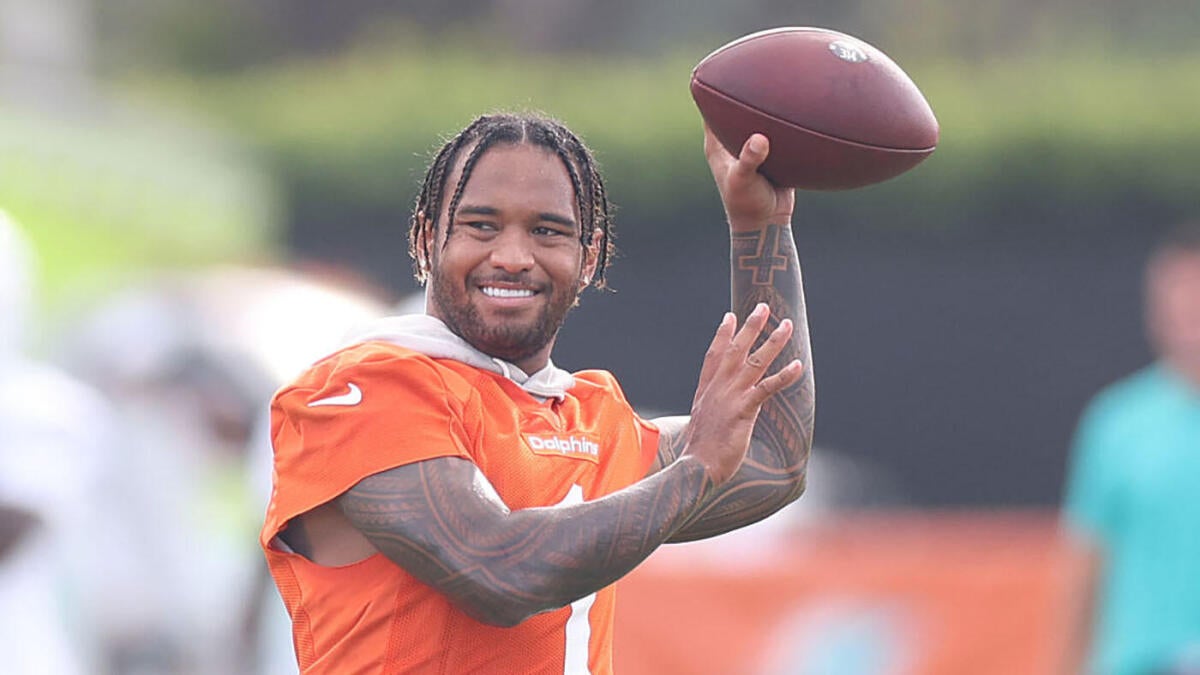Tua Tagovailoa’s Preseason Push: A Strategic Dilemma for the Miami Dolphins
The Importance of Preseason for Quarterbacks
Preseason games serve as a critical bridge between offseason preparation and regular-season performance. For quarterbacks like Tua Tagovailoa, these games offer invaluable opportunities to refine their skills in a live-game environment. The controlled chaos of preseason action allows quarterbacks to:
- Fine-tune their mechanics: The pressure of live defenders helps quarterbacks adjust their footwork, throwing motion, and decision-making under real game conditions.
- Develop timing with receivers: The split-second timing required for successful passes can only be truly honed through live repetitions.
- Assess offensive line protection: Preseason games reveal how well the offensive line can protect the quarterback, allowing for adjustments before the regular season.
- Build leadership presence: Quarterbacks can establish their leadership role by communicating effectively with teammates during live game situations.
The Unique Challenges Facing Tua Tagovailoa
Tagovailoa’s situation presents unique challenges due to his injury history and the Dolphins’ recent performance trends. The team’s 2024 season ended with a disappointing playoff miss, increasing the pressure on Tagovailoa to deliver in 2025. However, his history of concussions adds a layer of complexity to any decision about his preseason participation.
Key factors to consider:
- Concussion history: Tagovailoa has suffered multiple concussions, making him particularly vulnerable to head injuries.
- Team expectations: The Dolphins are expected to contend for a playoff spot, placing additional importance on Tagovailoa’s availability.
- Contract situation: As a franchise quarterback, Tagovailoa’s long-term health is crucial to the team’s future success.
The Coaching Staff’s Cautious Approach
Head coach Mike McDaniel’s gradual reduction of Tagovailoa’s preseason snaps reflects a deliberate strategy to protect the quarterback’s health. This approach suggests several underlying principles:
- Prioritizing regular season readiness: The coaching staff may believe that intense practices provide sufficient preparation without the added risk of preseason games.
- Protecting the investment: The Dolphins have significant financial and developmental investments in Tagovailoa, making his long-term health a top priority.
- Adapting to modern training methods: Advanced training techniques may have reduced the necessity for extensive preseason playing time.
The Medical Perspective on Preseason Participation
From a medical standpoint, the risks of preseason participation for Tagovailoa are significant. Concussion protocols in the NFL have evolved to emphasize player safety, but the inherent dangers remain:
- Increased concussion risk: Players with a history of concussions are more susceptible to subsequent head injuries.
- Long-term health implications: Repeated head trauma can have lasting effects on cognitive function and overall well-being.
- Psychological impact: The fear of reinjury can affect a player’s confidence and performance on the field.
The Organizational Dilemma
The Dolphins face a complex decision that balances immediate performance needs with long-term player welfare. Key considerations include:
- Short-term vs. long-term success: Should the team prioritize immediate improvement or long-term sustainability?
- Player autonomy vs. team control: How much influence should Tagovailoa have in deciding his own playing time?
- Public perception: How will fans and media react to the team’s decision regarding Tagovailoa’s preseason participation?
Potential Solutions and Compromises
The Dolphins could explore several approaches to address this dilemma:
- Gradual increase in playing time: Slowly introduce Tagovailoa to preseason action, monitoring his health closely.
- Specialized game plans: Design preseason game plans that minimize risk while still providing valuable experience.
- Enhanced medical protocols: Implement additional safety measures to protect Tagovailoa during preseason games.
- Alternative preparation methods: Utilize advanced technology and training techniques to simulate game conditions without live action.
The Broader Implications for the NFL
Tagovailoa’s situation highlights broader issues in the NFL regarding player safety and team management. The league continues to grapple with:
- Concussion protocols and prevention: How can the NFL better protect players from head injuries?
- Quarterback management: What are the best practices for managing franchise quarterbacks with injury histories?
- Player autonomy: How much control should players have over their own playing time and health decisions?
Conclusion: A Delicate Balance
The decision regarding Tua Tagovailoa’s preseason participation is more than just a football strategy—it’s a reflection of the NFL’s evolving approach to player safety and team management. The Dolphins must navigate this delicate balance with care, considering both the immediate needs of the team and the long-term well-being of their franchise quarterback.
Ultimately, the best path forward likely involves a measured approach that prioritizes Tagovailoa’s health while still providing him with meaningful opportunities to prepare for the regular season. The Dolphins’ ability to strike this balance will not only impact their 2025 season but also set a precedent for how NFL teams handle similar situations in the future. As the league continues to evolve, the lessons learned from Tua Tagovailoa’s preseason push will resonate far beyond the confines of Miami’s training camp.











